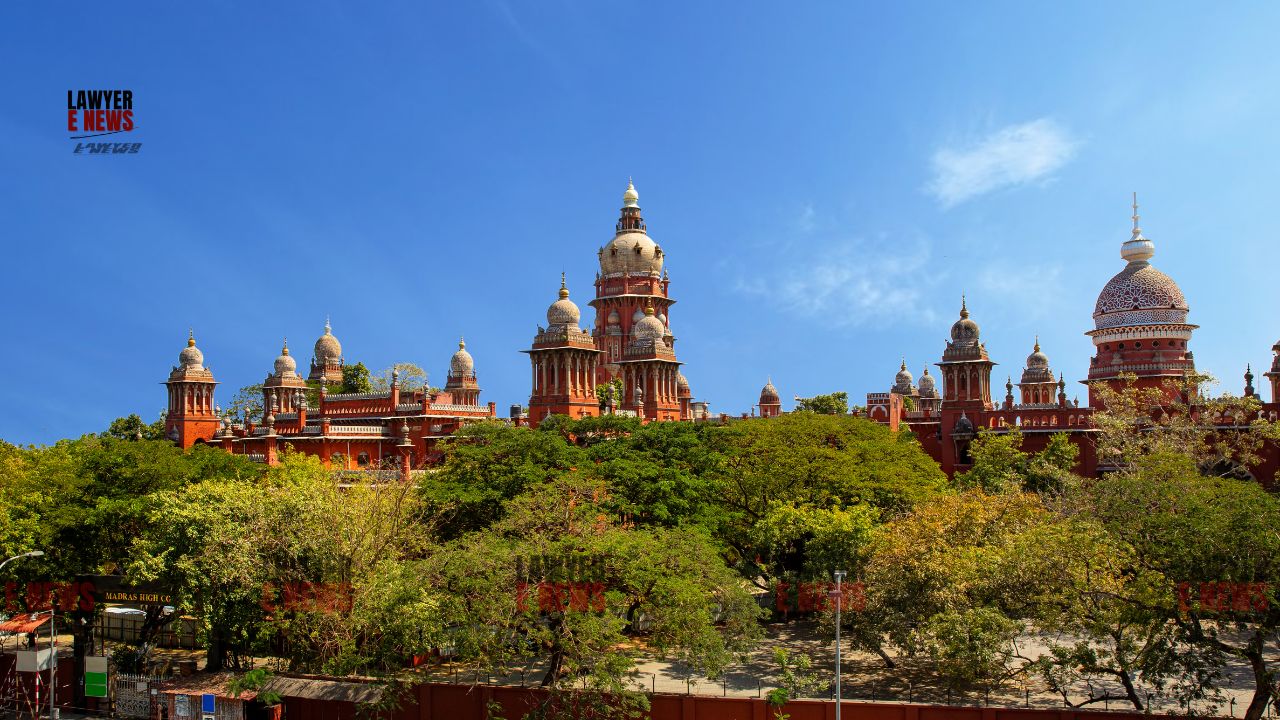-
by Admin
15 February 2026 5:35 AM



Madras High Court delivered a significant ruling in S.J. Lakshmi & Others v. P.S.S. Somasundaram Chettiar & Others, revisiting a long-standing partition dispute dating back to 1972. The court reviewed its earlier judgment and held that two properties—the Bishop Garden property in Chennai and a furnished flat in Bombay—were not subject to partition, as they were not part of the joint family estate.
This legal battle began in 1972 when S. Sathappan, as a minor represented by his mother, filed a suit for partition (C.S. No. 188 of 1972), seeking division of properties he claimed belonged to the joint family. The suit included numerous properties acquired by his father, Somasundaram Chettiar. Over time, multiple related cases were filed, including a 1983 suit by Somasundaram Chettiar, seeking a declaration of his exclusive ownership of several properties, including those not listed in the original partition suit.
The case spanned decades, involving appeals and reviews, with disputes over whether certain properties, such as the Bishop Garden house in Chennai and the Bombay furnished flat, should be included in the partition.
The core legal issue revolved around whether the two disputed properties—Bishop Garden and the Bombay flat—were joint family properties and thus subject to partition.
In earlier proceedings, the court had included these properties in the partition discussion, leading to confusion. However, the court’s latest review application corrected the record, confirming that these properties were not part of the partition suit (C.S. No. 188 of 1972) and were instead dealt with in a separate suit (C.S. No. 442 of 1983), which had been dismissed, and no appeal against this dismissal had succeeded.
The court emphasized that both the Bishop Garden and Bombay flat properties were not included in the original partition suit’s schedules, and the declaration suit had firmly established that these properties were self-acquired by Somasundaram Chettiar.
Justice M. Sundar and Justice R. Sakthivel reviewed the arguments and clarified that "Bishop Garden and Bombay furnished flat properties are not available for partition". The court set aside paragraph 269 of the earlier judgment, which had incorrectly treated these properties as joint family assets.
The court further noted that any observations or findings contradicting this clarification in earlier judgments or decrees were not binding on the parties. The ruling brought much-needed finality to the dispute, directing that the final decree proceedings would continue without including these two properties.
This ruling provided a clear resolution to a half-century-old legal battle, emphasizing the importance of accurate property classification in partition disputes. The court’s decision ensures that properties acquired independently are not wrongfully included in family partition suits.
Date of Decision: September 3, 2024
